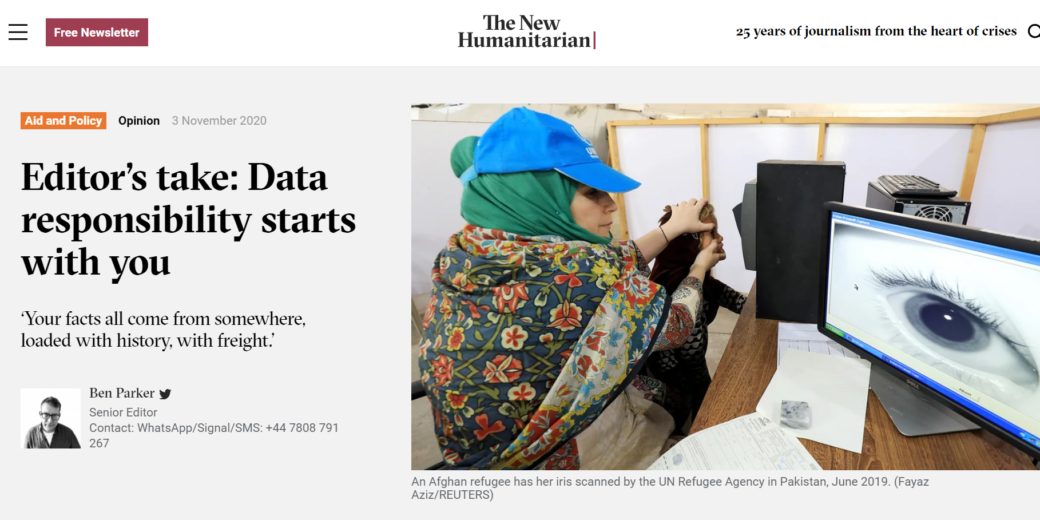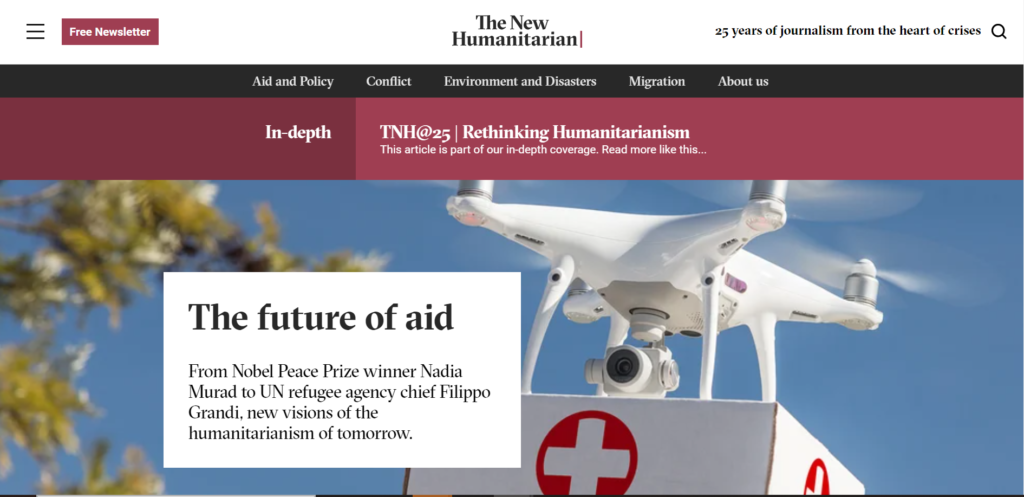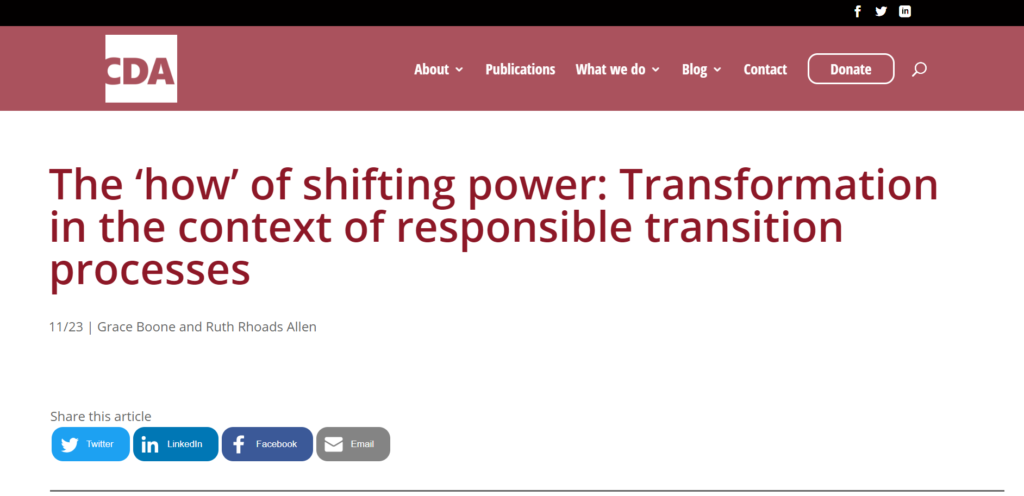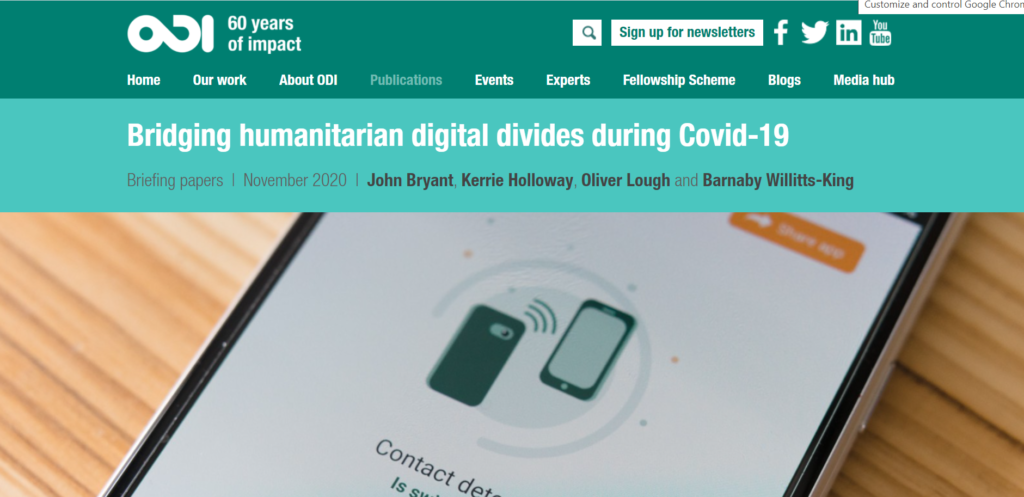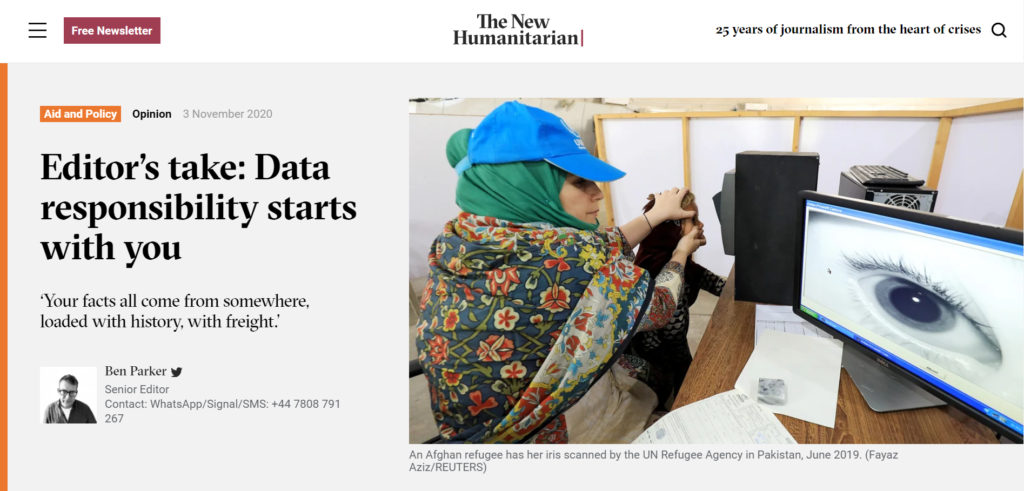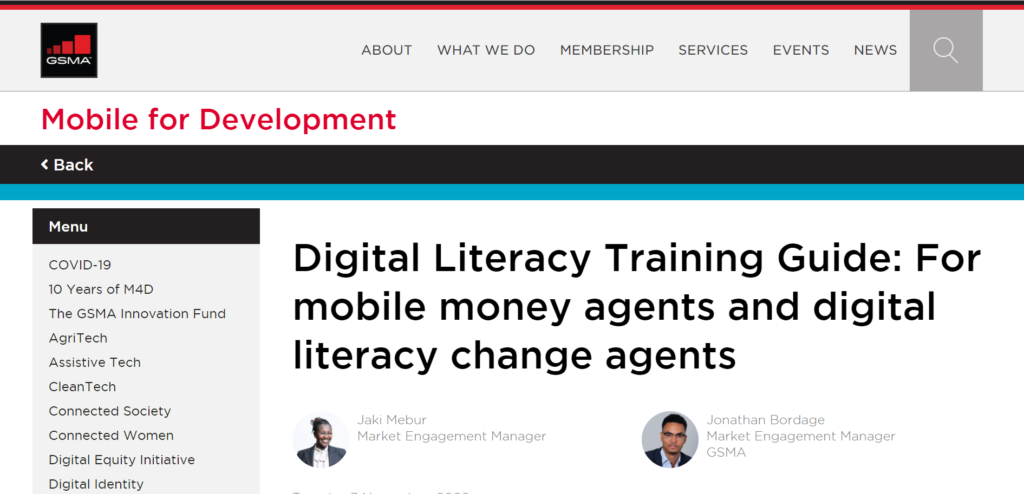Blogs that challenge, digital and power shift: the humanitarian five to read in November 2020
The Third... Wikipedia even has a page for it, turns out to be a “light novel series” – which in itself has a Wikipedia page. Light novel series turn out to be a style of Japanese young adult novels, often called ranobe. Guess you can keep on learning and informing yourself on things you never knew… For me this is the third blog post in my series to select five posts and articles from my sector to watch, read or dig into…
From the age of six I am dedicated to make a change, to support people in need. However I was always reflecting and critical. My path was clear to go to University and make sure I would fill my education toolbox to be as equipped as possible to be able to do meaningful jobs. From tropical agriculture degree I moved into humanitarian assistance. From field operations I went to data driven technology. From NGO work I moved to starting a movement for change.
No surprise this month I have made a selection based on reflections for the future of our sector. The future of aid, a very good and highly recommended series from the New Humanitarian. If you don’t do so yet, always good to start your morning readings with your coffee with this news outlet. The others that made the selection this month are on the shift of power, the transition process to support locally led development. The final three contributions this month are all concerning data responsibility, bridging the humanitarian digital divide and a digital literacy training guide.
Enjoy the selection, and relish to learn from you, what should I have read this month? Or the months to come?
The future of aid
The New Humanitarian reached out to leaders across and beyond the aid sector – from policy-makers to people with lived experience – to crystallise some visions for the future. Since, Rethinking Humanitarianism can feel like an abstract and even overwhelming undertaking. The New Humanitarian tried to help break it down.
The ideas coalesced around five broad themes: preventing conflict, mutual and activist aid, decolonising aid, shrinking the scope of the aid sector, and anticipating crises. Together, the ideas paint a picture of areas central to the to the humanitarian action of the future. Each theme is packed with notes, ideas and visions from experts and leaders worth a read – get your coffee out and take a moment to read up!
The ‘how’ of shifting power: Transformation in the context of responsible transition processes
In 2020, the world has gone through two critical reckonings: A global pandemic and a movement for racial justice now connected around the world. The development sector has been uniquely impacted as both forces intersect.
People living and working in their own contexts have always been and should be recognized as the driving force in their communities. Amidst calls for organizations’ racial justice statements to be met with action, it is undeniable that there is a window of opportunity to make systemic change. We see more intentional shifts of organizational relationship, from “charity” to solidarity and the aid sector grappling in new ways with our colonial and racist history. Grace Boone and Ruth Rhoads Allen blog at CDA about What Transformation Takes: Evidence to support locally led development
Bridging humanitarian digital divides during Covid-19
While digital technologies have been increasingly employed in humanitarian crises for more than a decade, they are needed now more than ever due to the Covid-19 pandemic. Restrictions on travel, a switch to remote working and ‘social distancing’ have left international, national and local humanitarian staff unable to access affected communities, while logistics and humanitarian supply chains are disrupted. At the same time, needs continue to increase. There is now an urgent need for humanitarian actors to engage with affected people differently but, despite initial predictions, there has not been a significant shift in how the sector uses and considers new technologies to do so.
This HPG, Humanitarian Policy Group, briefing note analyses how humanitarian actors are deploying digital technology to address specific challenges posed by Covid-19; how relationships between technology providers, governments and humanitarian organisations are changing due to the pandemic and what this means for the future of technology in the humanitarian sector.
(if you wish to see the full publication, please click here)
Editor’s take: Data responsibility starts with you
People love graphs and maps. Bosses like them. Donors like them. In this often depressing world of humanitarian action, data glitters. In this opinion blog in the New Humanitarian, Ben Parker addresses our impact, our neutrality, our responsibility in writing about facts and compiling those into maps, infographics, our surveys etc.
But the way the world has gone, it’s time for a talk about data responsibilities. Misinformation and disinformation are running wild. Data can be – is being – weaponised. Given how much of the material about crises and emergency relief is now driven by numbers, maps, and graphs: values really matter for the way data is presented too. Your maps, your surveys, your COVID-19 graphs, your cool infographics, they’re not neutral.
Digital Literacy Training Guide: For mobile money agents and digital literacy change agents
Research by the GSMA and others shows that refugees still face severe challenges to accessing the financial services they need to expand their businesses beyond a micro-level. In January 2019, Grameen Foundation and the GSMA Mobile For Humanitarian Innovation Program (M4H), hosted a workshop in Kampala on increasing access to financial services in humanitarian contexts, to discuss the barriers refugees face in accessing digital financial services, and possible facilitators to increase access and uptake, especially among women.
During this workshop key barriers to access and uptake of financial services were identified. In this blog Jaki Mebur and Jonathan Bordage summarize those. To address these challenges in a way that is responsive to the needs, priorities and understanding of rural, low-literacy women, the GSMA, MTN Uganda and Grameen Foundation collaborated to develop the Digital Literacy Training Guide. The guide contains a curriculum designed to address the knowledge, attitudinal and skills barriers that prevent refugees-especially women–from accessing and using financial services.
